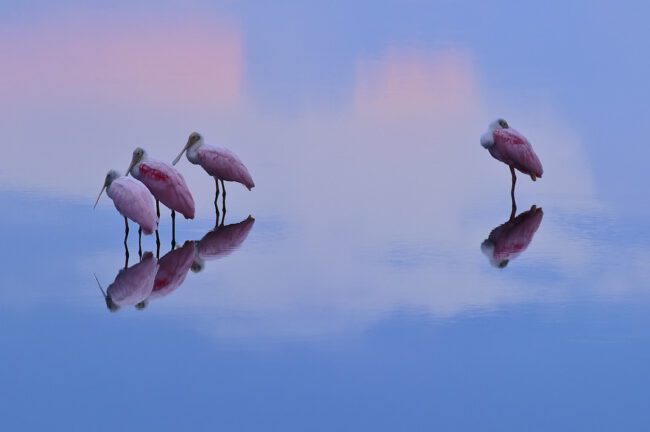I have been getting a lot of questions from our readers about whether they should pick a particular camera from Nikon, Canon, Sony, Pentax or some other manufacturer. These inquiries are only increasing over time, so I decided to post an article on what I think about different camera systems and why you should go with a particular brand versus others. Many of the questions are something like “should I go for Nikon D5000 or Canon 1000D” or similar, with readers asking me to tell them why I would recommend or pick a certain brand/type of a camera over another.
As you know, I have been mainly writing about Nikon – simply because pretty much all of my gear is from Nikon and it is the system of choice for me. Why don’t I shoot Canon or Sony? Is Nikon superior than these brands? No, not really. Read on to understand why.
Lola and I used to have some debates on camera gear in the past. She was very impressed by the beautiful imagery from wedding and portrait photographers that shot with Canon, pushing her to think that we had an inferior brand of choice. It took me a while to convince her that it was not the case and here is how I explained everything to her, which I hope will help our readers understand this topic in detail and answer questions about different camera systems.
What happens if you give the best set of painting tools to someone who does not know how to paint, and an ordinary, much inferior set of tools to a good painter? Who is going to have a better painting? The same rhetorical question is valid for photography – if you get a better camera, does it necessarily mean that you will take better pictures? No, I do not want to bring up another “camera does not matter” debate, since we are all getting tired of it.
You know what, on the other hand, let’s discuss it for a second…does the camera truly matter? It does and it doesn’t. For most people who use a camera for family snapshots, the camera does not matter. For an amateur photographer or hobbyist, it does. For a professional photographer who makes a living out of photography, it matters big time. When somebody hands a crappy camera to a good photographer, he/she will most likely be able to utilize it fully and capture great pictures. Similar to how a good painter is able to work on a painting with a low-quality set of tools. However, no photographer would want to continue working with low-end gear and no painter would want to use low-quality tools for the rest of their lives, since they know that the good tools do help them tremendously in achieving the best results that differentiate them from the rest of the competition. Ansel Adams loved to work with the best gear for a reason – he knew how to push it to its limits and get the best possible results.
I forgot where I heard or read this story, but it got stuck in my head for a while. The story goes like this. Two photographers are standing side by side and taking pictures – one is a professional photographer who makes a living selling his pictures and the other one is an amateur/hobbyist. The pro obviously shoots with a very expensive camera and lenses, while the amateur is shooting with an average camera and a kit lens. The amateur knows that the pro is famous and that he sells his pictures. At one point of time, he turns towards the pro and says “sure enough, with gear like that I bet you can get great shots that sell”. The pro tries to convince the amateur that his camera is just his tool, but the amateur keeps insisting otherwise. At one point, the pro says to the amateur “I will give you my camera gear and you give me yours. We shoot for several hours. The photographer that comes back with better images gets to keep all camera gear”. Without much thinking, the amateur just walks away…
So, when does the camera matter? If you are just getting into photography, I would say the camera you pick does not matter. If you are an amateur or hobbyist and you shoot for pleasure, having moderate to good photography skills, the camera you use does matter to a certain extent. If you are a pro making a living selling your pictures, the type of camera you use is extremely important.
Sensor size matters. No matter what some people say, sensor size does matter. There is a significant difference between a tiny sensor on a point and shoot camera and a DSLR full-frame sensor. Things like dynamic range, depth of field, viewing angles and noise all contribute to the overall quality and perception of an image and the difference is quite apparent. This difference is certainly smaller between full-frame and cropped sensor cameras, but still enough to impact the look of the photographs.
Lenses matter. The type of lens you use, its focal length, aperture and color rendition also play a huge part in how the final image comes out. You will never be able to isolate a subject with a point and shoot camera like you can with a 50mm f/1.4 lens. You cannot replicate the effect of a tilt/shift lens with an ordinary zoom lens.
The Photographer’s Eye. Finally, you have to remember that a camera is just a tool in a photographer’s bag. Without the photographer’s skill set, patience, vision, creativity, planning, timing, lighting and post-processing, even the best camera in the world will not be able to create a good picture.
Now let’s talk about different camera systems that are available today. Since the demand for DSLR cameras has been increasing significantly (just pay attention to how many people carry DSLRs in parks today), companies have been putting more money on R&D and more players have been entering the DSLR market. As of today, the current manufacturers of mainstream DSLR cameras are: Canon, Nikon, Sony, Panasonic, Olympus, Pentax, Leica, Samsung, Fujifilm and Sigma. With so many different brands and types of cameras to choose from, it is getting harder to choose a particular brand over another. On top of that, the new players are offering more features at lower prices, luring cost-conscious customers their way.
So, which brand should you invest in? Yes, you heard it right – invest. If you are planning to be serious about your photography, you will be buying more gear over time. Whether it is new cameras, lenses, filters, flashes or memory cards, the type of the camera system you pick is important. If you make a wrong choice, it will be very costly to sell all of your gear and replace it with a different brand. On top of that, you will have to spend some time to learn the new system and get used to it. So, going back to the question on which brand should you invest in, as I have pointed out in my “How to buy a DSLR camera” article that I wrote a while ago, I would pick between Nikon, Canon and Sony. I added Sony to the list, because the company has been releasing solid products during the last few years and uses the excellent Zeiss lenses. Choose between these three brands and you won’t go wrong. Nikon and Canon certainly lead with the widest selection of cameras, lenses and accessories, but Sony will most probably catch up pretty soon.
There are some other brands such as Olympus, Pentax and Panasonic that have also been doing well in the market, but they are still in their early stages. Olympus and Panasonic have been quite successful with their four thirds and micro four thirds systems, but again, they do not yet have a wide array of lenses to choose from at the moment. While smaller sensor systems are relatively lightweight, they just cannot match the image quality of larger sensors. Unless weight is your major concern, I would skip these types of camera systems at the moment.
Another thing you can do, is see if anyone you know already has a DSLR and ask for their suggestion and advise. If the person you are asking is a good photographer, it might be a good idea to buy the same brand camera, so that you could learn from that person and even possibly borrow gear in the future before you buy your own. This is very helpful especially if the photographer is a professional – you won’t have to surf the Internet for hours to understand something or make a decision.
No matter what camera system you pick or use today, you most likely pay a lot of attention to other brands. If you own a Nikon camera, you look at Canon cameras and compare. If you own other brands, you are probably looking at Nikon and Canon. The thing is, the grass is always greener on the other side when it comes to cameras and lenses. The topic of Canon vs Nikon, for example, always comes up between photographers. Nikonians look at some of the Canon cameras and want more megapixels, while Canonites look at some of the Nikon cameras and want less noise. Lens debates between these two brands are also endless… At the end of the day, the question you should be asking yourself is, how much better would your pictures get if you picked one brand over another (or switched from one brand to another). Most likely, the change would be very insignificant. You gain one thing and lose another. What if one brand comes up with a breakthrough product tomorrow. Are you going to switch or regret your purchase decision?
Again, think of your camera as your tool for the job. Without good technical skills and creativity, no matter what camera system you use, you will never be able to capture anything good. Read, learn, learn and learn, then experiment and shoot a lot – that’s the only way to become a better photographer. Don’t become a gearhead and buy more and more useless stuff you do not need. Once you become a better photographer, you will know exactly what you need to get the best results.
Good luck!
source: The mansurovs
p/s: Im still using my alpha.will keep on learning.





No comments:
Post a Comment